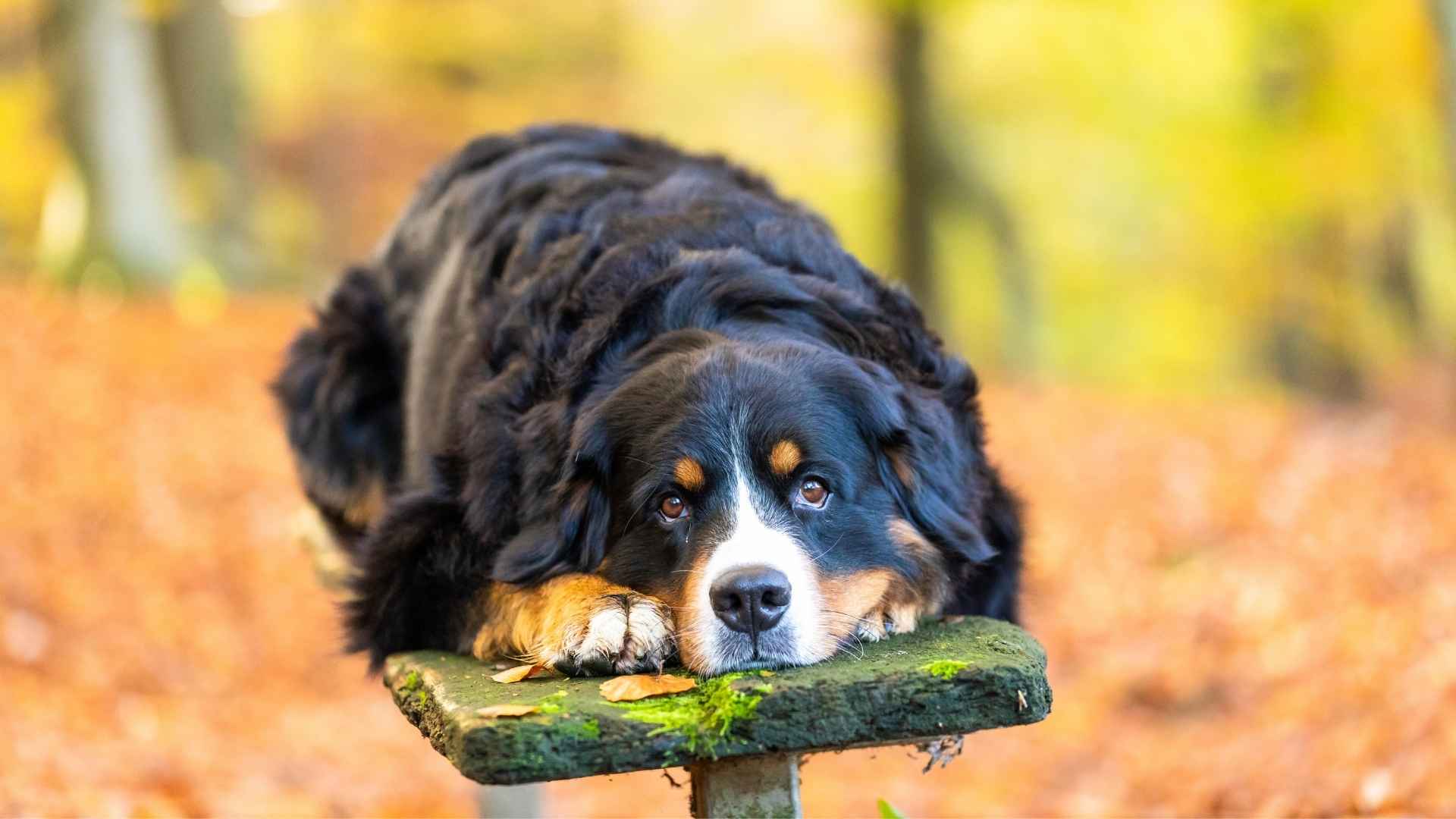When evaluating canine intelligence, breeds are often assessed based on their ability to learn and obey new commands promptly. Not every dog needs a job to feel fulfilled. While some breeds demand endless puzzles, agility courses, and problem-solving, others are just happy to exist, cuddle, and take naps. You might be better matched with a low cognitive demand dog breed if you value peace, predictability, and a relaxed canine companion.
These dogs don’t need constant mental challenges to stay happy. They’re less likely to outsmart you (or the baby gate) and more likely to just hang out by your side without trying to run the household. That doesn’t make them any less lovable—it just makes them easier to manage for busy owners, first-time dog parents, or folks with a more relaxed pace of life.
This blog will introduce you to seven sweet, simple pups who prefer companionship over complexity. They’re low-maintenance, easy to entertain, and don’t require advanced obedience school to thrive. Let’s meet the mellow-minded masters of chill.
Low Cognitive Demand Dog Breeds
1. Clumber Spaniel
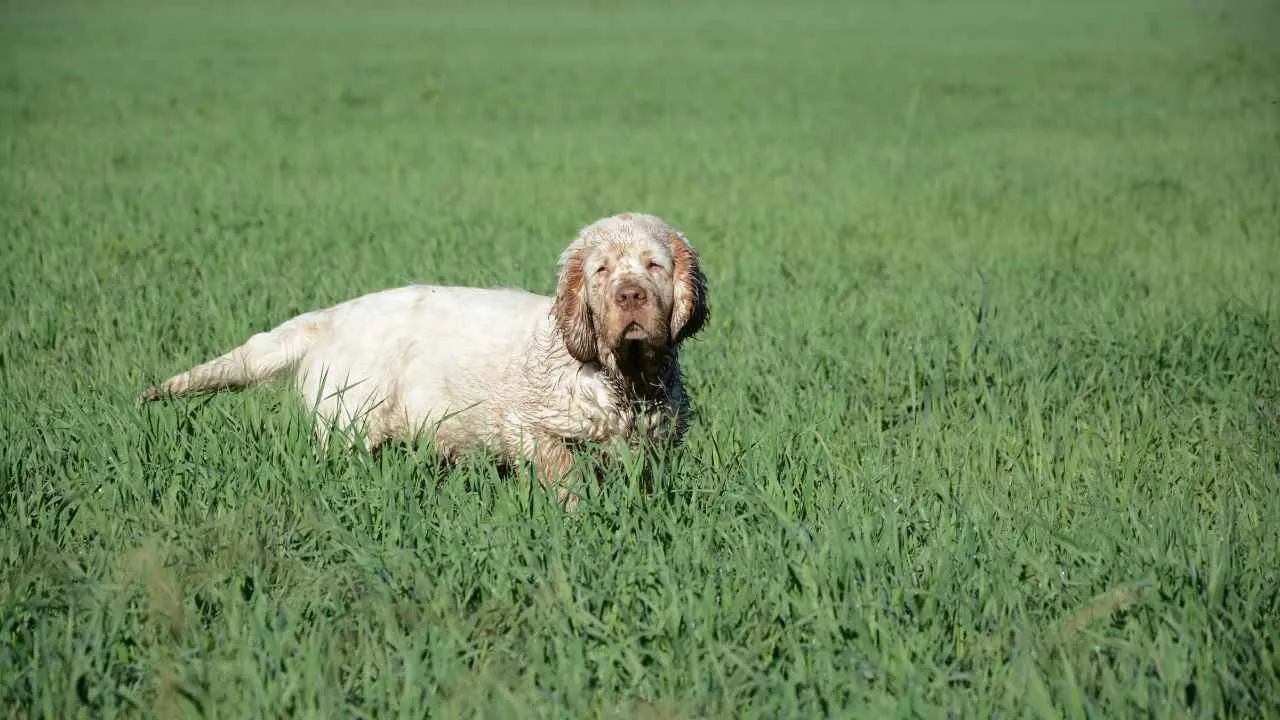
The Clumber Spaniel is basically a walking marshmallow with ears.
Known for their calm demeanor and slow pace, these AKC-recognized hunting dogs are content with simple pleasures: snacks, short walks, and long naps. They’re not eager to learn advanced tricks, and honestly, they’re perfectly fine with doing the same things every day.
Clumbers don’t require elaborate training schedules or puzzle toys to feel fulfilled. Their idea of mental stimulation is sniffing around the backyard and finding a good place to snore.
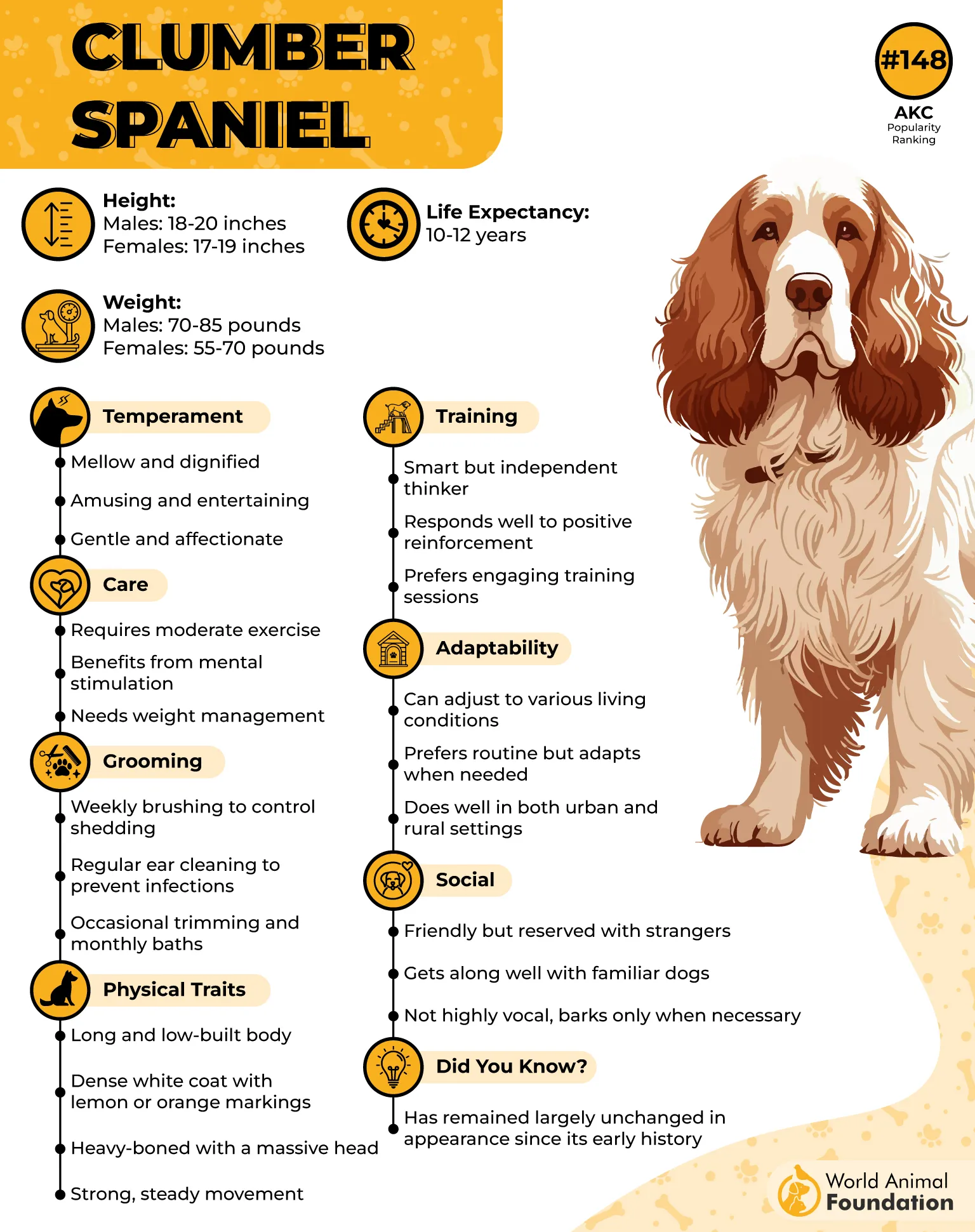
They’re emotionally connected to their people but lack the high drive intensity of more demanding breeds.
This breed is ideal for families or individuals who want a dog that doesn’t require a ton of mental management. Clumbers are sweet, affectionate, and highly adaptable.
They’re not going to run a doggy obstacle course, but they’ll melt into your side like a big, sleepy teddy bear.
2. Basset Hound

The Basset Hound might be the poster dog for chill vibes.
With their droopy eyes, floppy ears, and famously low-energy nature, Basset Hounds are more focused on comfort than cognitive conquest. Though they are a bit low in cognitive abilities, they’re intelligent in their own way, but they’re not problem-solvers—they’re pleasure-seekers.
These dogs follow their nose more than their brain. They can be a bit stubborn, but it’s not because they’re calculating; it’s just that they move at their own pace.
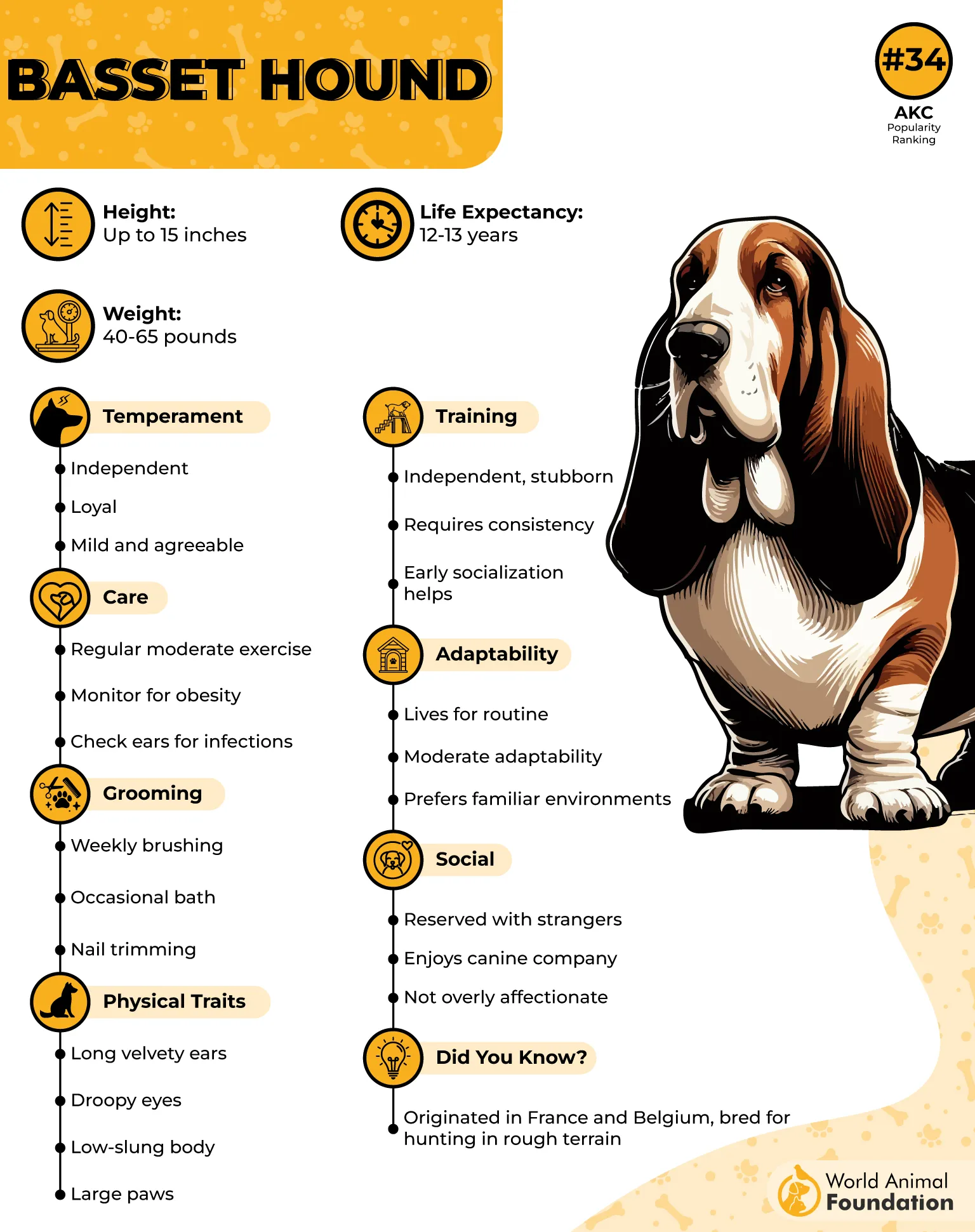
Basset hounds are content with simple daily walks and a consistent routine. They won’t bug you for games or mental stimulation—they’ll just be happy to hang.
If you want a dog that won’t need agility courses or constant training challenges, the Basset Hound is a dream. They love their humans, appreciate a cozy bed, and prefer familiarity over novelty. They’re charmingly low-effort in the best way possible.
3. Chinese Crested
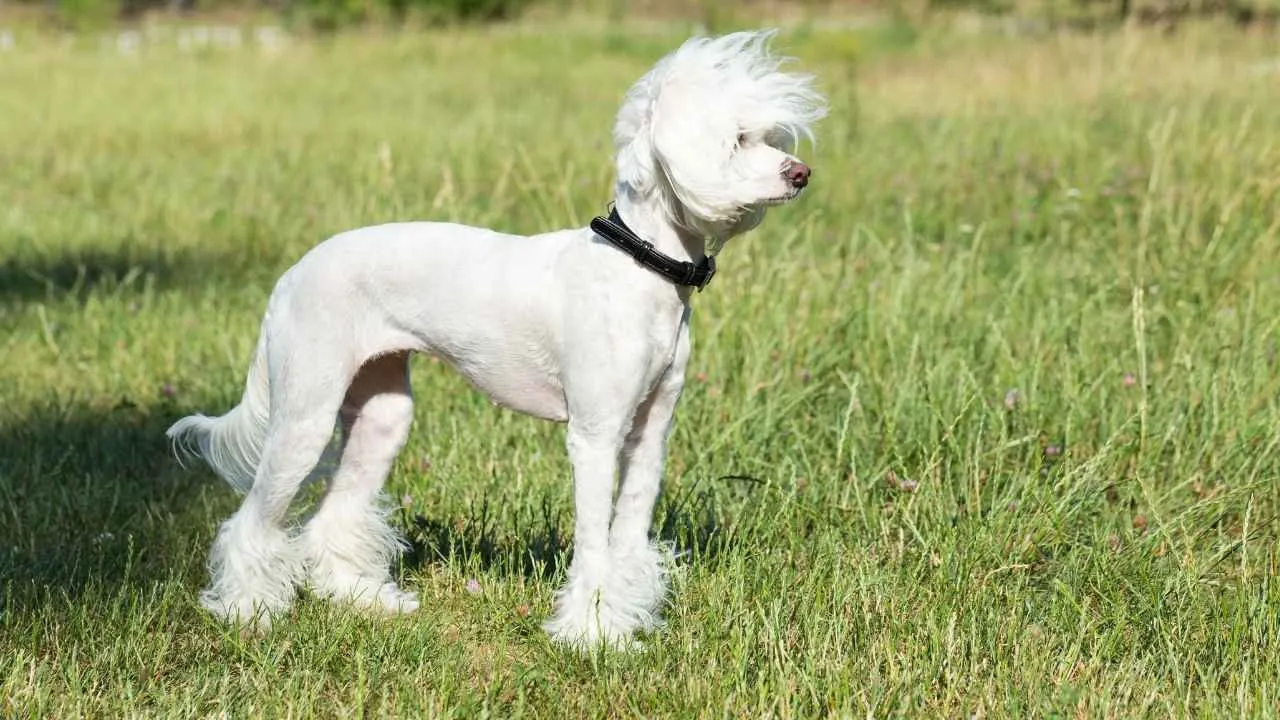
The Chinese Crested may have a unique look, but its personality is refreshingly straightforward. But they are not exactly the highly intelligent breed you might expect them to be!
Britannica notes these quirky little dogs are all about companionship and comfort, not showing off intelligence tricks or high-energy behavior. They’re low-drama, low-demand, and totally content in your lap
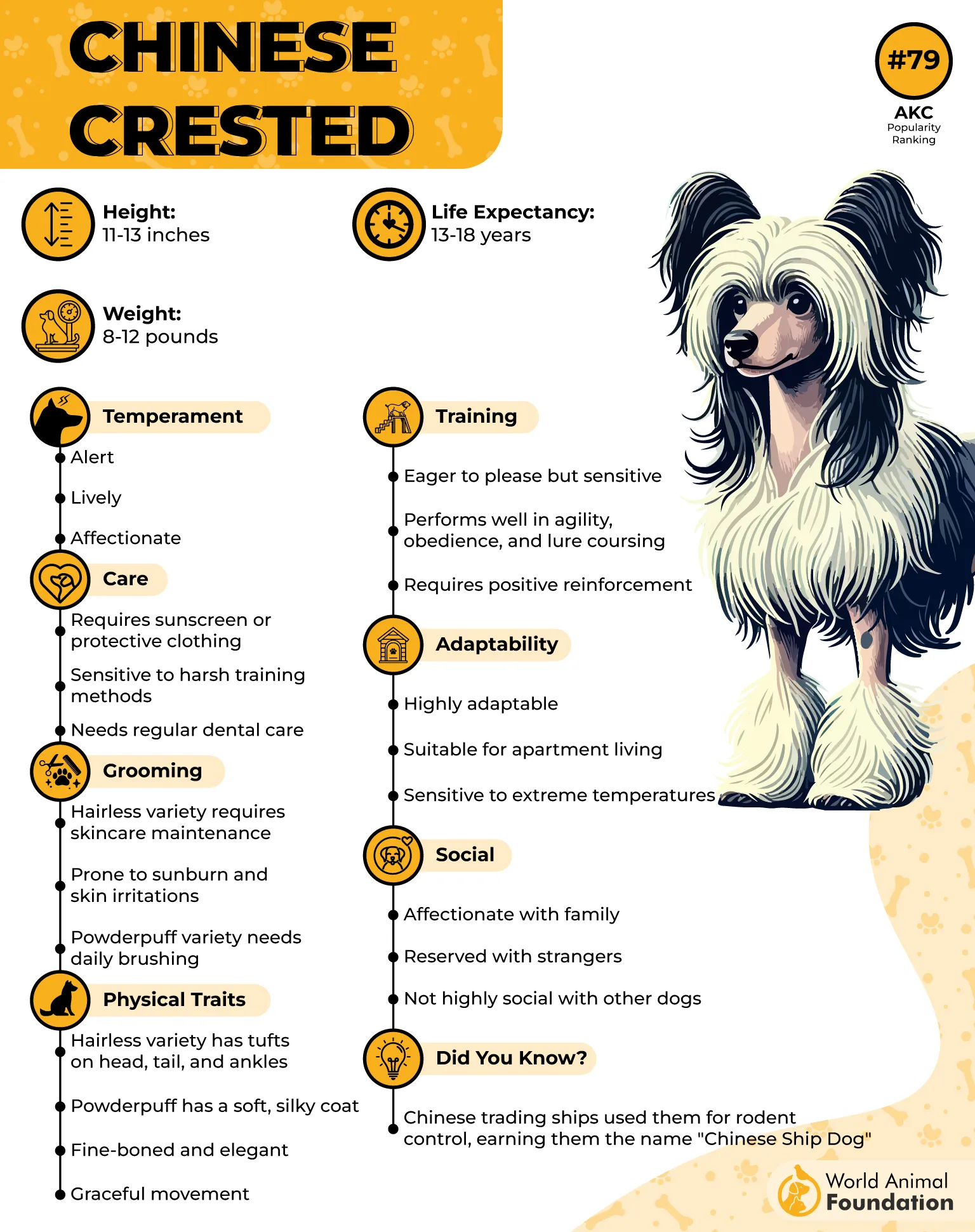
These dogs have low prey drive and minimal curiosity, so they’re not constantly looking for things to chase, chew, or conquer. Their entertainment needs are simple—some cuddles, light play, and lots of naps.
While they can be alert and a little playful, they don’t need mental stimulation the way working breeds do. A few cuddles, a little wander around the living room, and they’re good. Their biggest cognitive challenge is deciding which blanket to nap under.
Chinese Cresteds bond closely with their humans and are very emotionally aware, but they’re not demanding thinkers. They’re more in tune with your mood than with puzzles. Cresteds are emotionally intelligent, but they don’t need mental challenges to thrive—they just need affection and a safe, quiet space.
If you’re looking for a companion who’s as easy on your time as they are on your furniture, this laid-back lapdog is a perfect match.
4. Shih Tzu
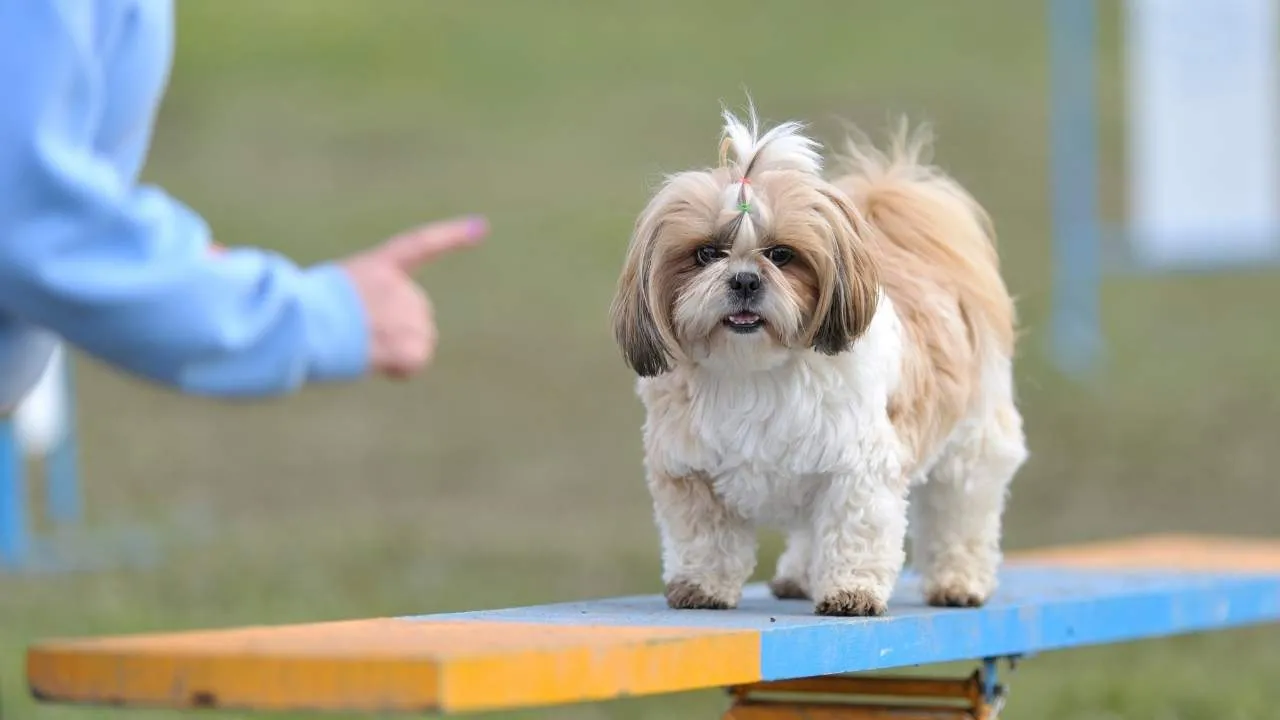
The Shih Tzu is a breed that was literally born to be pampered.
Originally bred as lap dogs for Chinese royalty, these little fluffballs are more interested in love and lounging than learning. While they can pick up basic commands, they’re not constantly looking for new tasks.
This small dog thrives on predictability and consistency. A regular feeding schedule, short walks, and cuddle time are all a Shih Tzu needs to feel content. No complex routines or training regimens are required.
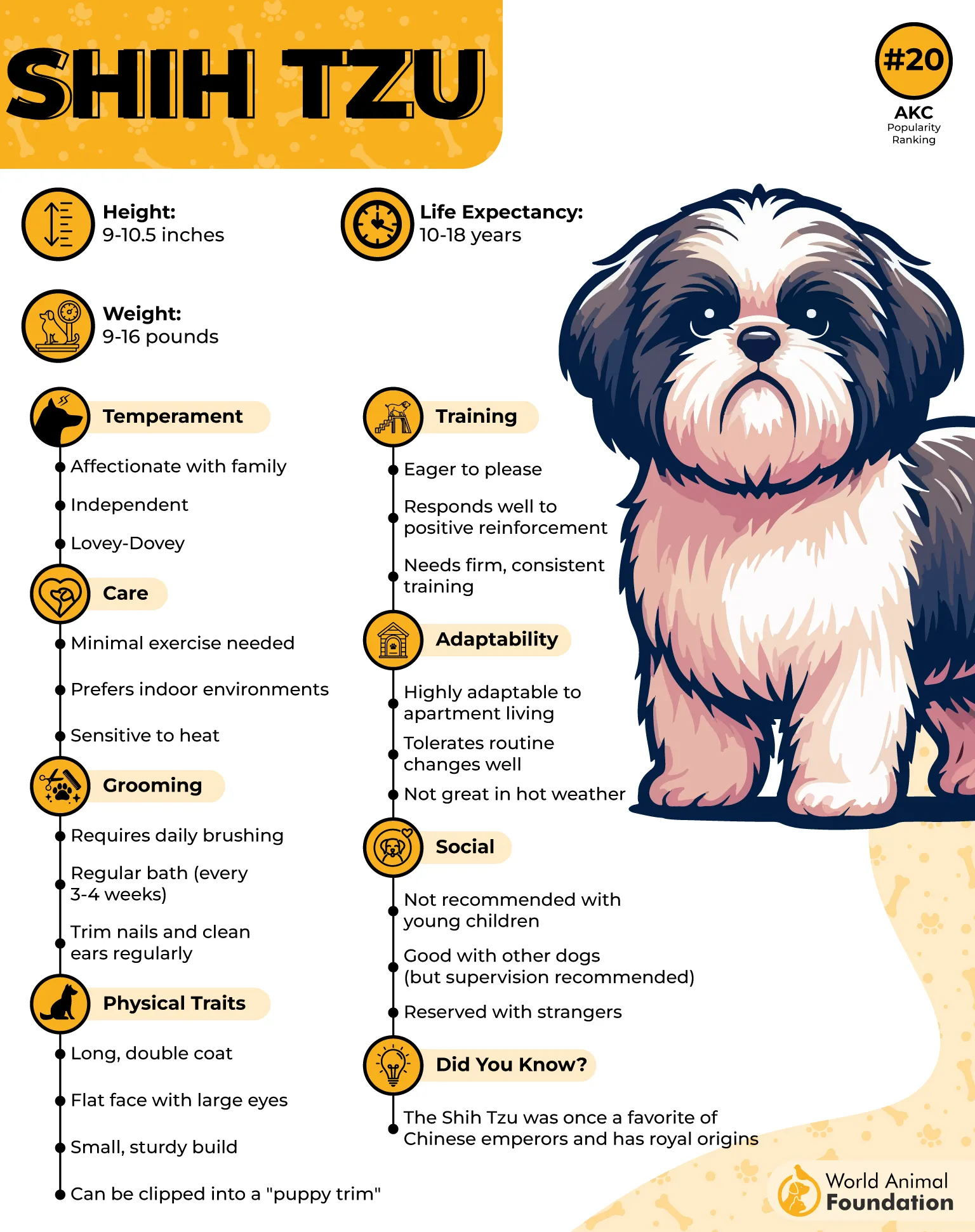
Their happiness comes from routine, human connection, and soft places to sleep. They’re not the type to dismantle your house out of boredom or master an escape plan from the backyard. Their brains operate on a simple program: eat, cuddle, nap, repeat.
Shih Tzus aren’t nosy or mischievous.
They won’t try to open doors, outsmart the trash can, or figure out how to escape the backyard. They’re homebodies who just want comfort and companionship.
Shih Tzus do benefit from basic obedience, but beyond that, they don’t crave intellectual stimulation. If you’re looking for a dog that brings joy without the need for brain games or trick training, the regal but relaxed Shih Tzu is a low-key dream.
5. Brussels Griffon
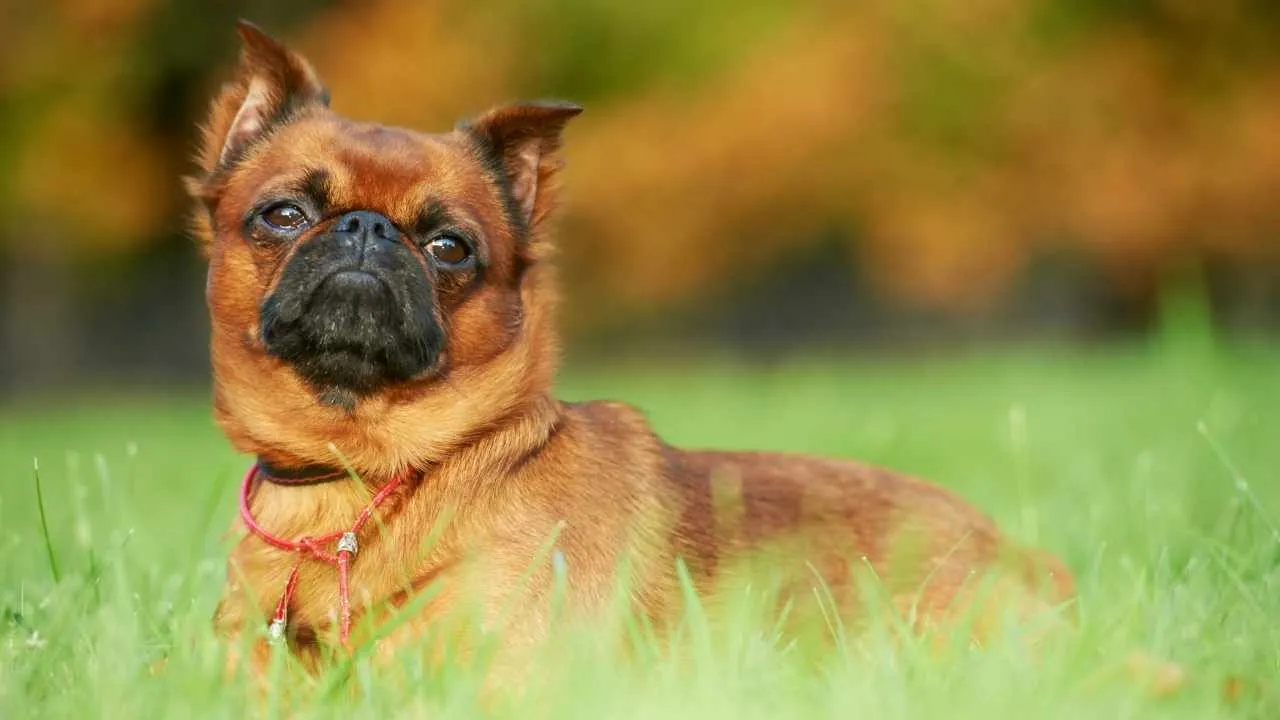
Small, scruffy, and full of character, the Brussels Griffon is surprisingly low-maintenance in the brainpower department.
Not exactly an intelligent dog breed, it is expressive and loyal.
But these dogs are not deep thinkers. They’re not wired to solve complex tasks—they just want to be with you and feel safe.
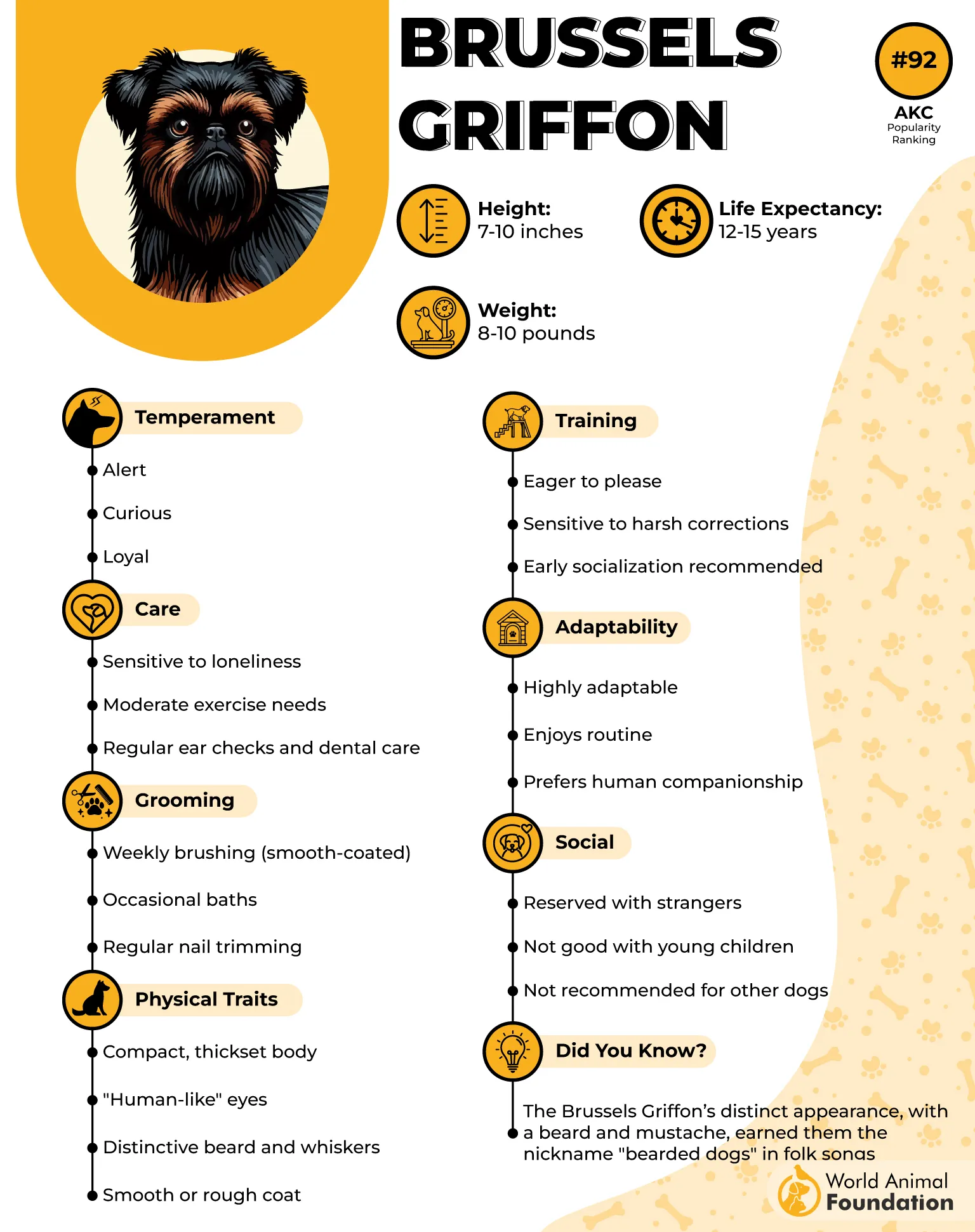
PetMD claims they enjoy attention and play, but they’re not insistent or high-strung about it. A comfy space, a routine feeding time, and snuggles will keep them content. You won’t catch them opening doors or devising elaborate games—they’re more likely to just stare at you lovingly.
Griffons don’t need puzzle toys or advanced training to stay happy. A soft lap, a cozy blanket, and a few minutes of playtime are enough to meet their modest mental needs.
This makes the Brussels Griffon a fantastic pet for someone who wants a low-stress companion with a charming personality. They’re not working dogs and are happy with a quiet life and will offer affection and company without constantly needing to be mentally engaged.
6. Japanese Chin
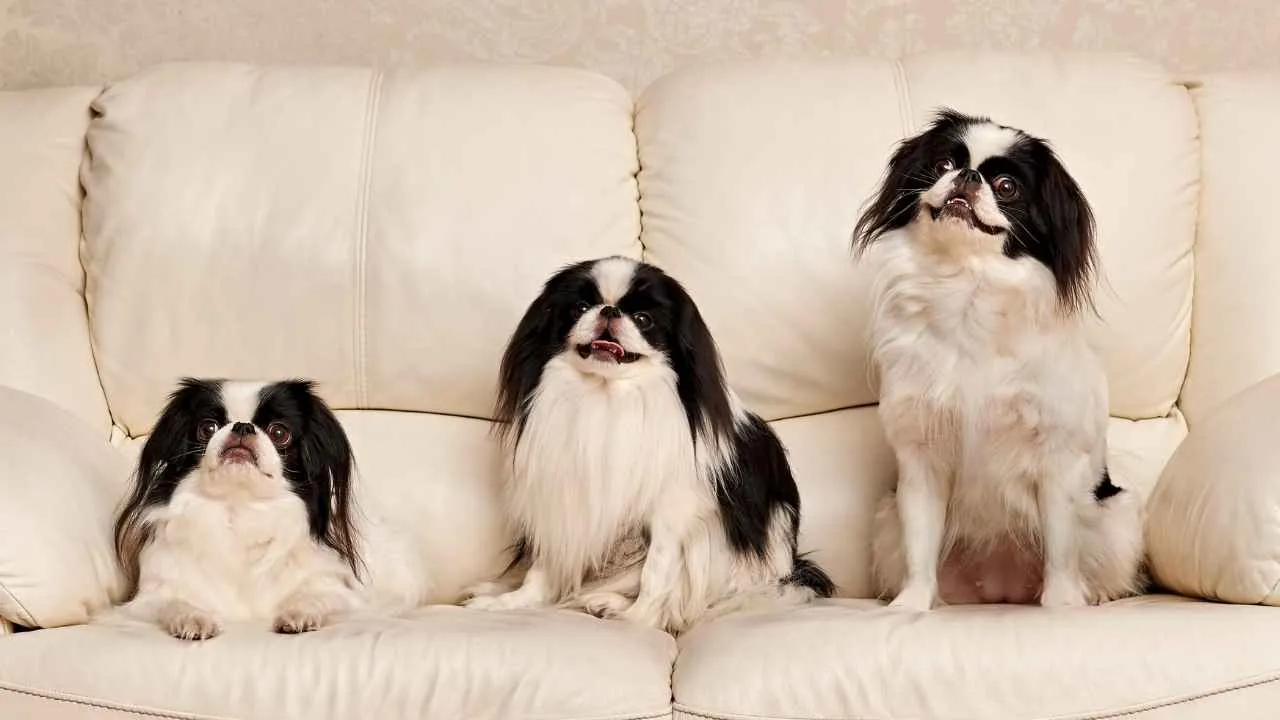
The Japanese Chin is another ancient lapdog that thrives on routine, comfort, and human presence, not clever tricks or intellectual adventures.
They’re dainty, graceful, and perfectly content with a slow-paced, predictable lifestyle.
Japanese Chins weren’t bred to solve problems or complete complex tasks, unlike working or herding breeds. Their purpose was purely companionship, and they’re perfectly happy keeping things simple.
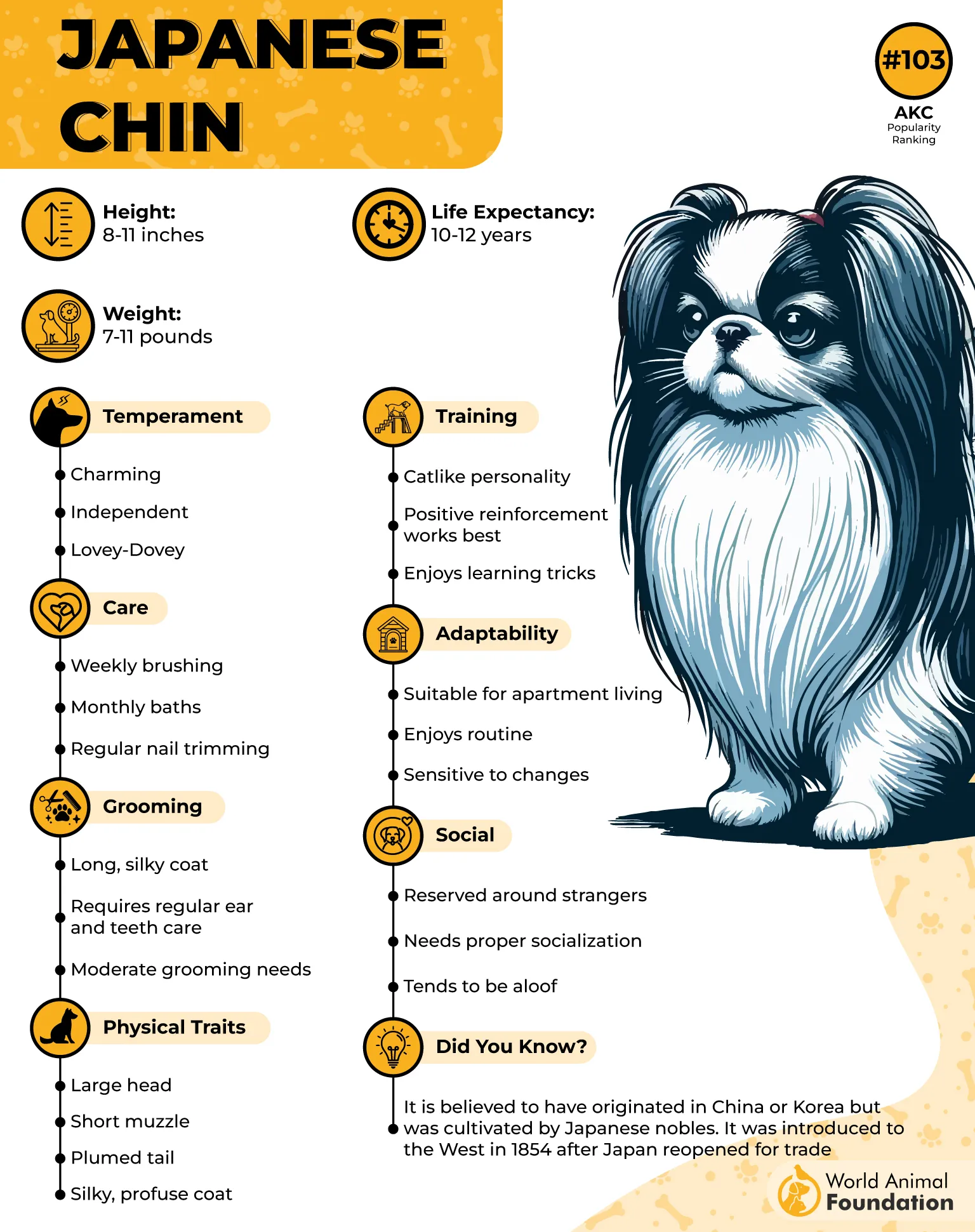
Chins are independent yet affectionate, as Purina mentions. They’re not pushovers, but they’re also not mischievous. They won’t test your boundaries or require constant training challenges. Their cognitive needs are minimal, which makes them excellent companions for people who prefer low-maintenance pets.
These herding dogs easily pick up basic manners, but they don’t require (or desire) intensive obedience work. They’re naturally polite and well-mannered, especially in quiet homes.
If your idea of a good time is a cup of tea and a curled-up companion beside you, the Japanese Chin will fit right in. They don’t ask for much; in return, they provide loyal, serene companionship without mental gymnastics.
7. Maltese
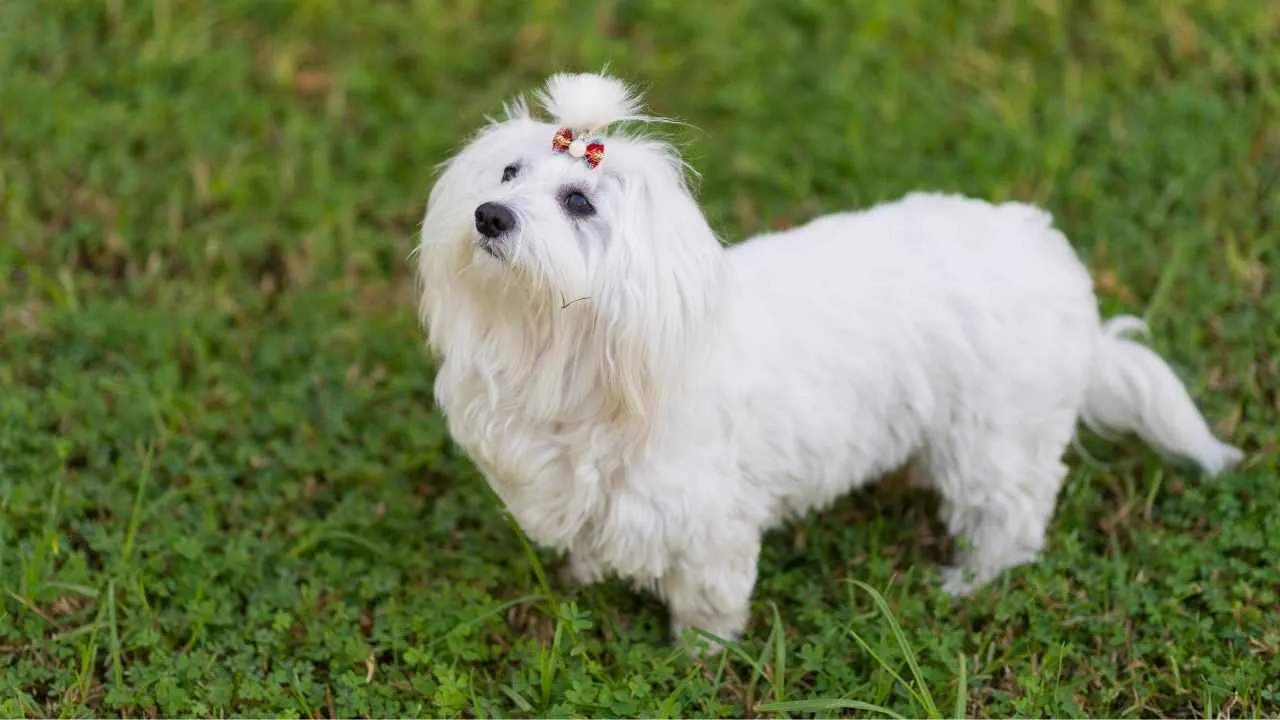
The Maltese may look like tiny divas, but their temperament is more about cuddling than complexity.
These dogs are sweet, social, and easy to please. While they respond well to gentle training, they don’t need constant stimulation to stay happy.
Maltese dogs are happiest with a simple daily schedule — wake up, cuddle, eat, walk, nap, repeat. They don’t crave novelty or constant mental challenges, which makes them incredibly easy to live with.
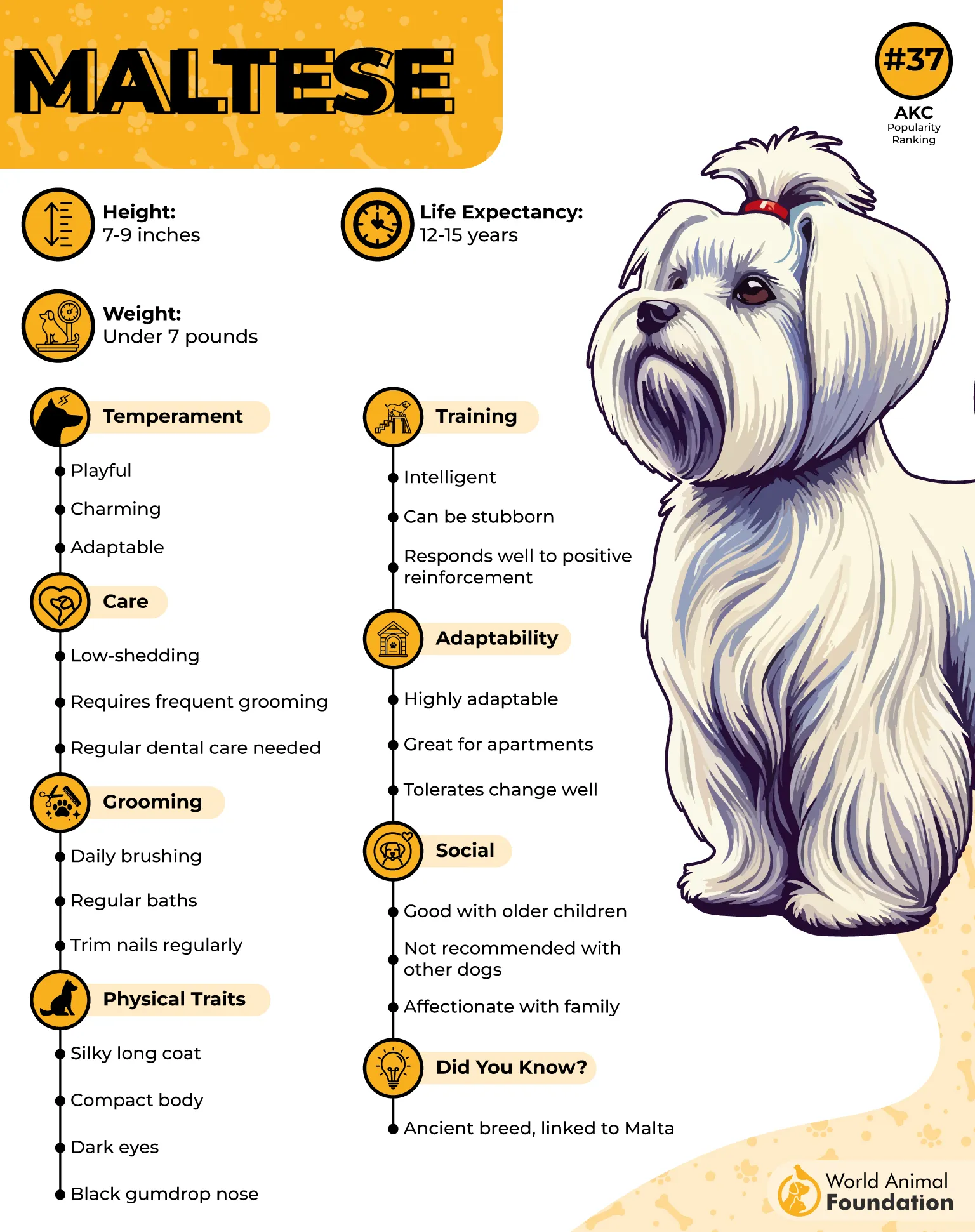
They’re more focused on their humans than learning puzzles or advanced tricks. A simple routine, some lap time, and a comfy bed are all it takes to keep a Maltese content. They’re not likely to dig holes in your yard or try to escape your house—they just want to be near you.
Unlike high-IQ breeds that may open doors or escape crates, the Maltese are not interested in testing boundaries. They’re calm, content, and not prone to mischief if unstimulated.
As per Omlet, their gentle nature makes them ideal for relaxed households, especially with older adults or first-time dog owners. One reason behind this is that they avoid excessive barking.
The Maltese proves that a dog doesn’t need to be a genius to be a joy. They bring love, loyalty, and lots of naps—no brain games required.
Conclusion
If you’re looking for a low-key companion who thrives on love rather than learning, these low-cognitive-demand dog breeds are tailor-made for you. They don’t need enrichment mazes, hours of training, or doggy boot camps. They just need your time, your lap, and a calm home.
While high-IQ dogs can be thrilling to train, they’re also a lot of work. Certain breeds are easygoing, gentle, and emotionally rewarding without the intensity. They’re perfect for people who want a dog that fits into their lifestyle without turning it into a full-time project.
Cavalier King Charles spaniel, Border collie, Great danes, German shepherd, Labrador retriever, Golden retriever, and Doberman pinscher are some other dogs with low cognitive demand.
From the slow-moving Clumber Spaniel to the cuddly Maltese, every dog on this list is a reminder that not all joy requires complexity. Sometimes, the best bond is built in quiet moments, on soft couches, with dogs who love to be there.
So, if you’re seeking a furry friend who offers love without needing a job description, these breeds are your laid-back, loyal match made in dog heaven.


